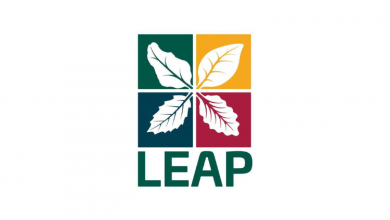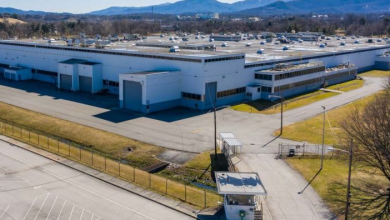Roanoke Gas Co. seeks state approval of renewable energy project
A plan to convert biogas from a sewage treatment plant into natural gas that will be distributed to Roanoke-area homes and businesses is projected to reduce carbon emissions by more than 13,000 metric tons a year.
Roanoke Gas Co., which is participating in the renewable energy project with the Western Virginia Water Authority, is seeking approval from state regulators.
The system will cost an average Roanoke Gas residential customer an extra 4 cents a month, according to an application filed last week with the State Corporation Commission.
In May, Roanoke Gas and the water authority announced what is believed to be the first such endeavor in Virginia: The installation of a large piece of equipment that will convert biogas created from the processing of sewage at the authority’s treatment plant into natural gas.
“We’re pretty proud of Roanoke Gas being the first in line to get an application in,” said Paul Nester, president and CEO of the company.
Estimated to cost about $16.5 million, the project would produce enough renewable natural gas to power up to 500 homes on a cold winter day.
While the operation’s output will be relatively small — Roanoke Gas has about 63,000 customers in the Roanoke region — it has been described as a way to protect the environment and allow for the total recycling of waste collected by the water authority.
It will also partially insulate Roanoke Gas customers from significant price increases by giving the company a locally produced supply that would not be subject to nationwide trends, according to the SCC application.
Approval by the SCC is required because of the proposed 4-cent rate increase needed to cover Roanoke Gas’s costs of about $7 million. The rest of the project’s total cost will be borne by the water authority, which will make improvements to its system to enable the natural gas conversion process.
Roanoke Gas is also asking the commission to approve a certificate of public convenience and necessity for the facility. If approved, the system could be in operation by early next year.
Here is how it would work:
Every day, the water authority’s Roanoke Regional Water Pollution Control Plant receives about 37 million gallons of sanitary sewer from all of the Roanoke Valley jurisdictions.
The wastewater goes through an extensive treatment process that makes it safe to release into the Roanoke River. The solids that are left behind are moved to giant underground tanks where they are partially consumed by bacteria — similar to what happens in a residential septic tank — before eventually being distributed as free fertilizer for farms.
It is the second phase of the system, involving solid waste, that lends itself to the production of renewable natural gas.
As bacteria breaks down the organic material in an anaerobic digestion process, a biogas is produced that consists of 63% methane and 37% carbon dioxide.
Under the plan, that biogas will be pumped to a network of above-ground tanks, where an advanced membrane separation system will be used to refine it to pipeline-quality natural gas for distribution to the community.
Roanoke Gas will purchase and operate the conversion system, which will convert the biogas to natural gas and transport it at high pressure to an existing line that currently runs through the water authority’s property.
In the past, the water authority had used some of the biogas — also known as digester gas — as a fuel source, but ended up burning much of the methane off in flares designed to prevent more harmful emissions into the air.
Although converting biogas to fuel has been done before in Virginia, mostly in dealing with methane produced by landfills and animal waste from farms, the project is believed to be the first involving a wastewater treatment plant and a natural gas utility.
The system will produce about 500,000 cubic feet per day of natural gas. By comparison, the Mountain Valley Pipeline — construction of which is currently stalled by lawsuits from opponents — is expected to transport 2 billion cubic feet per day of natural gas.
Roanoke Gas currently gets its supply from two existing natural gas pipelines, and says it needs Mountain Valley to meet future demand. The renewable natural gas project is not expected to change that need, Nester said. A sister company of Roanoke Gas is a 1% partner in the Mountain Valley venture.
But opponents argue there is no need for Mountain Valley, saying it will contribute to climate change by transporting huge amounts of fossil fuels at a time when the country’s emphasis should be on renewable energy.
Referring to natural gas that will be produced by the conversion project as renewable energy “is always a bit problematic,” said Diana Christopulos, a Roanoke Valley environmental advocate.
And compared to the impact Mountain Valley will have, she said, the reduction of greenhouse gasses to be gained by the Roanoke Gas project is “a tiny drop in the bucket.”




